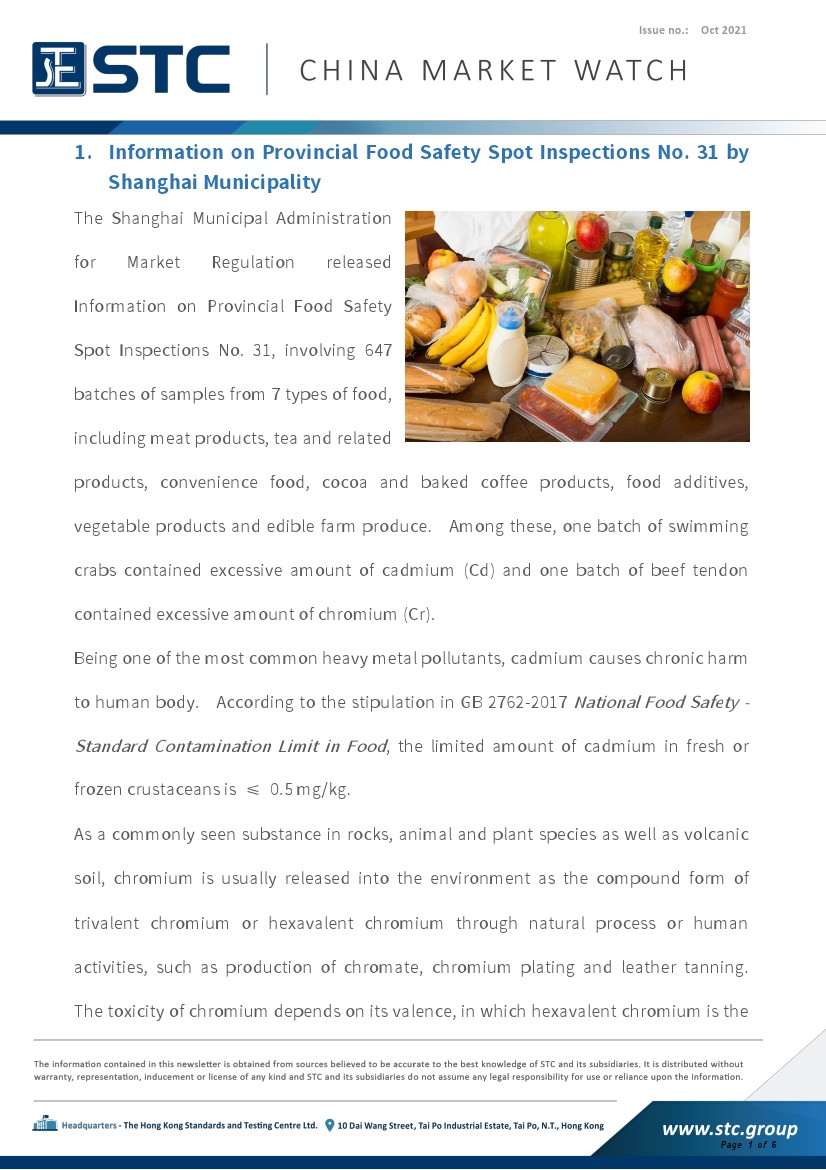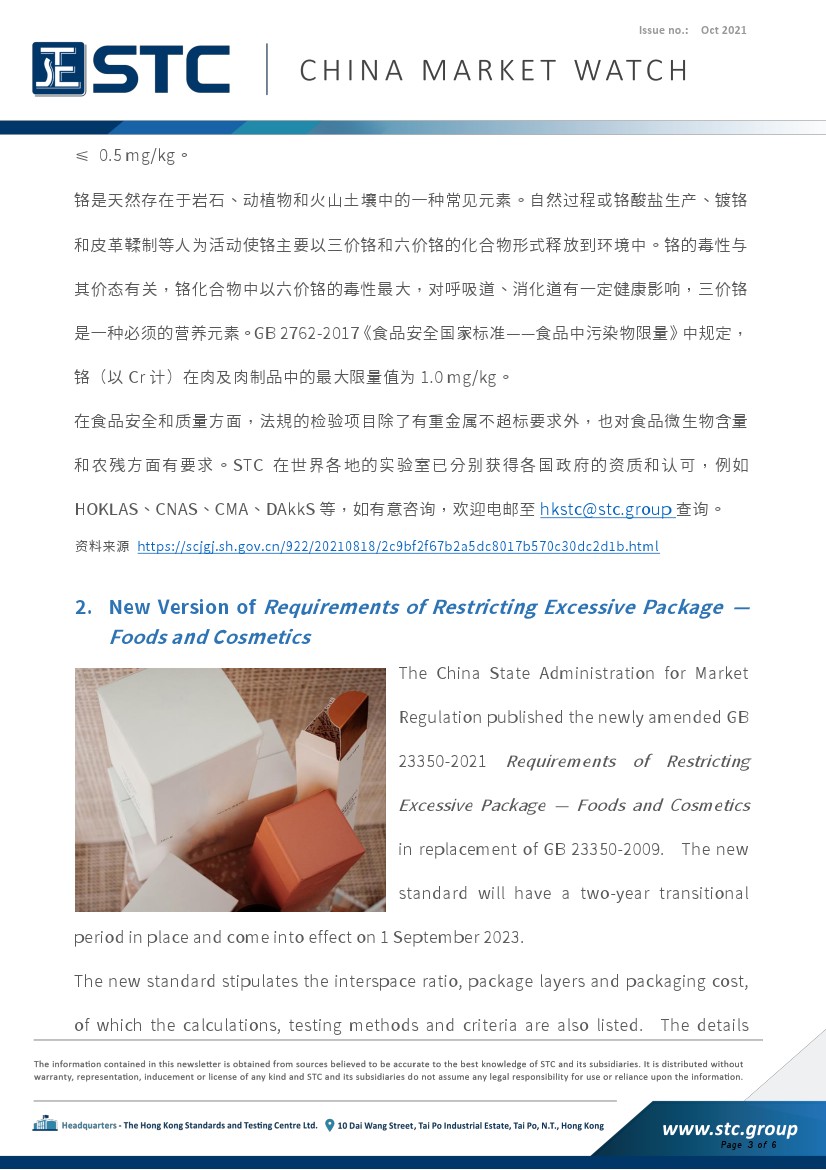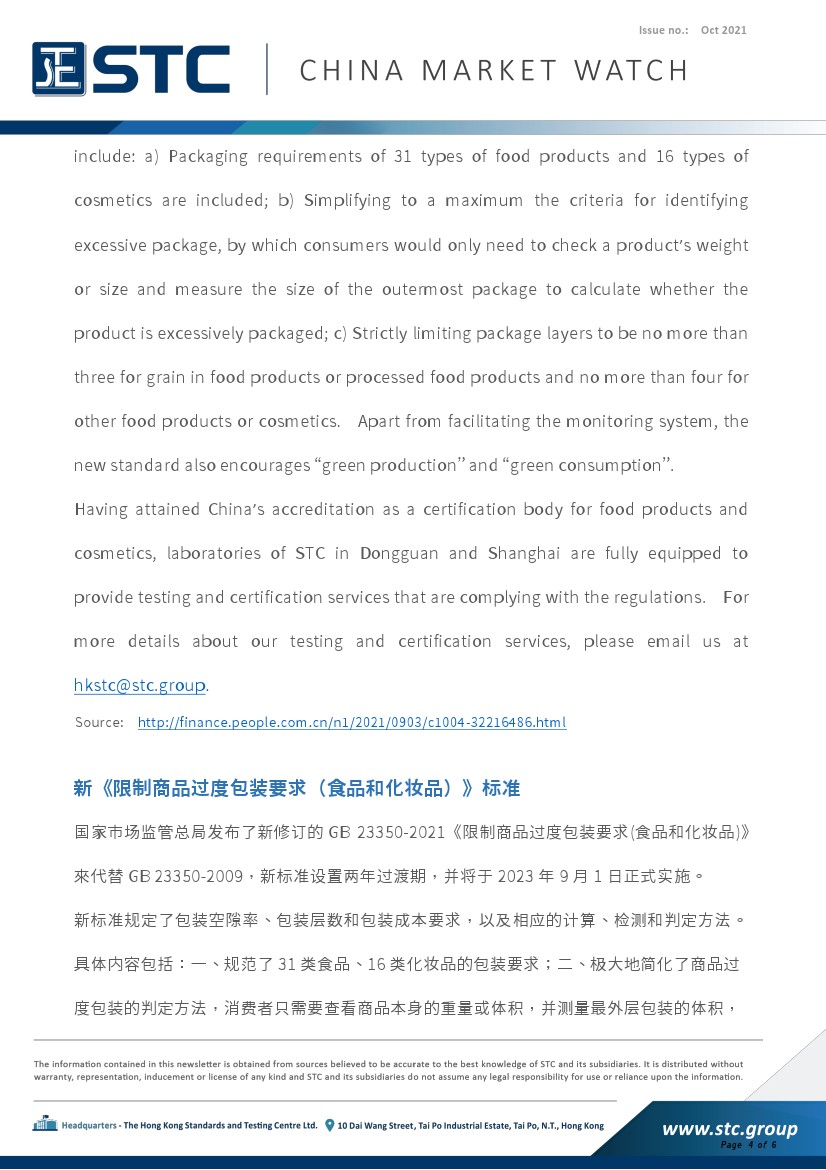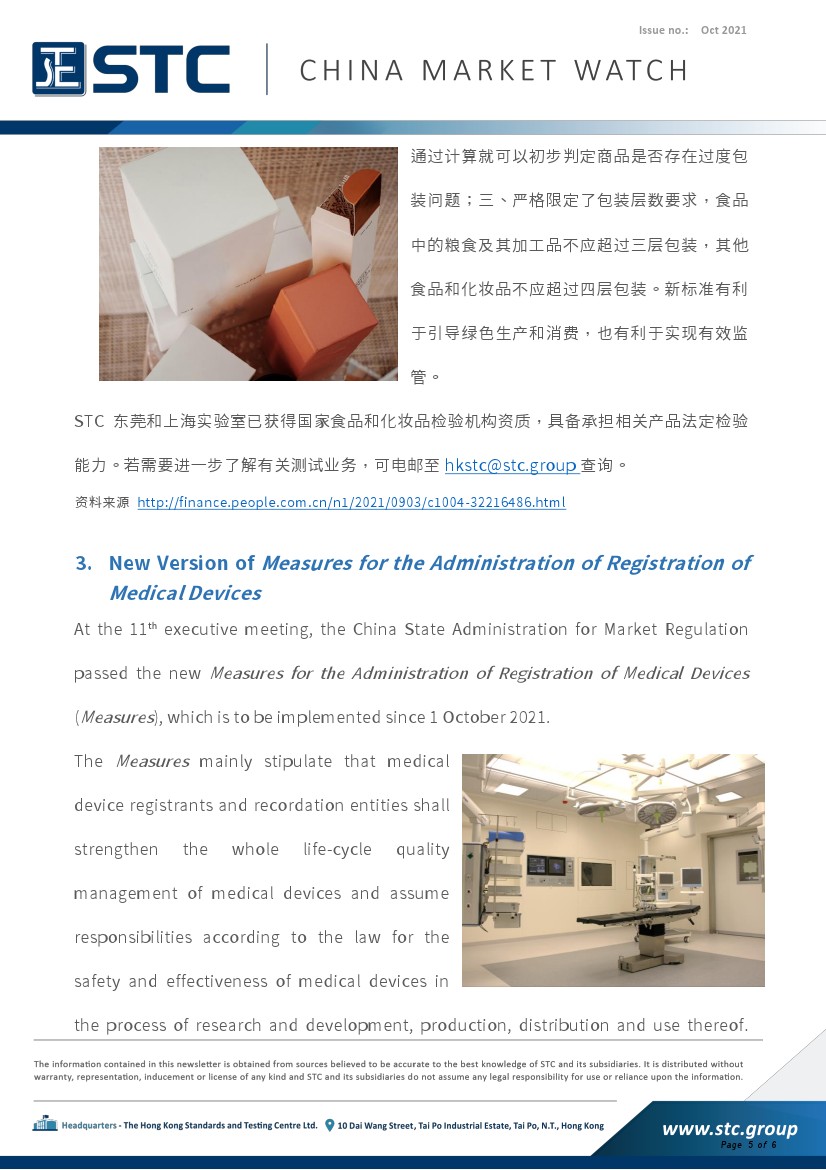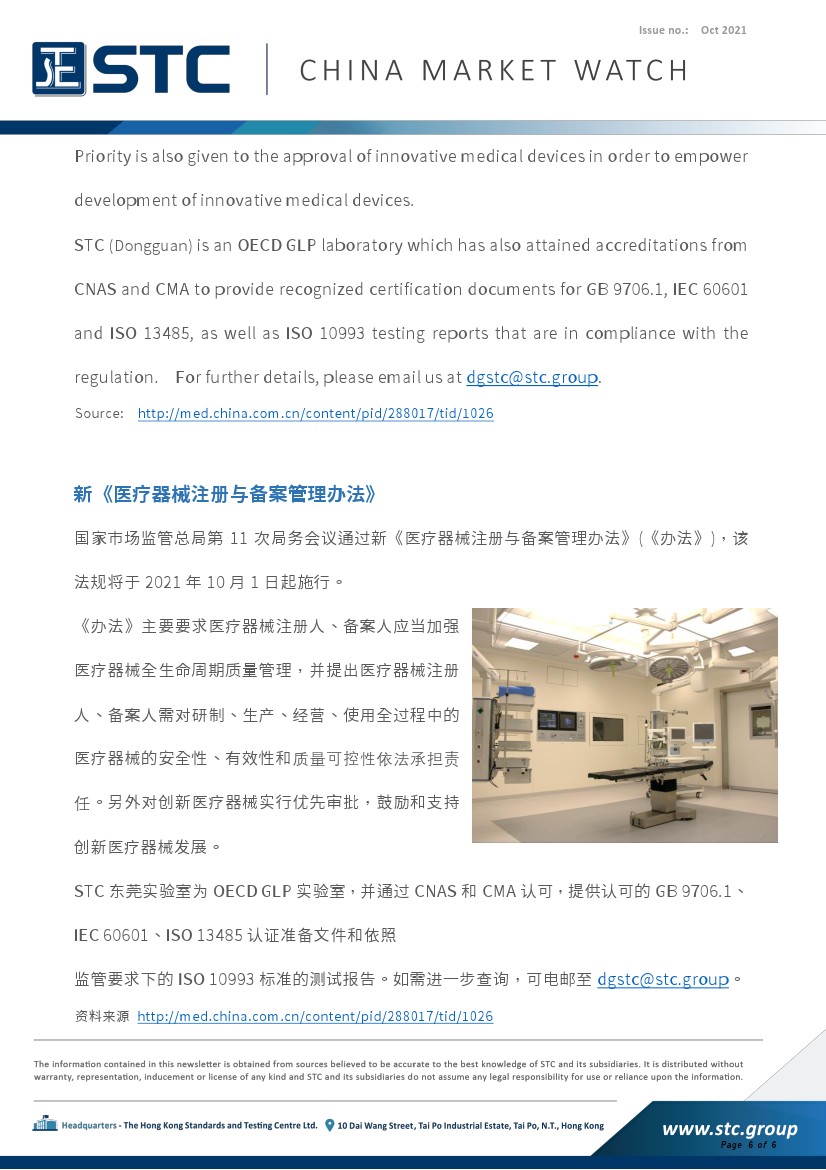1. Information on Provincial Food Safety Spot Inspections No. 31 by Shanghai Municipality
The Shanghai Municipal Administration for Market Regulation released Information on Provincial Food Safety Spot Inspections No. 31, involving 647 batches of samples from 7 types of food, including meat products, tea and related products, convenience food, cocoa and baked coffee products, food additives, vegetable products and edible farm produce. Among these, one batch of swimming crabs contained excessive amount of cadmium (Cd) and one batch of beef tendon contained excessive amount of chromium (Cr).
Being one of the most common heavy metal pollutants, cadmium causes chronic harm to human body. According to the stipulation in GB 2762-2017 National Food Safety - Standard Contamination Limit in Food, the limited amount of cadmium in fresh or frozen crustaceans is ≤ 0.5 mg/kg.
As a commonly seen substance in rocks, animal and plant species as well as volcanic soil, chromium is usually released into the environment as the compound form of trivalent chromium or hexavalent chromium through natural process or human activities, such as production of chromate, chromium plating and leather tanning. The toxicity of chromium depends on its valence, in which hexavalent chromium is the most toxic and a threat to respiratory and digestive systems, while trivalent chromium is an essential nutrient. Stipulated in GB 2762-2017 National Food Safety - Standard Contamination Limit in Food, the maximum limit of chromium (Cr) in meat and meat products is 1.0 mg/kg.
With regard to safety and quality of food, the testing and certification scope stipulated by laws and regulations covers the amount of heavy metal, food microorganisms and pesticide residues. Worldwide laboratories of STC have already attained accreditations and recognition from the local governments, for example, HOKLAS, CNAS, CMA and DAkkS. For more details, please email us at hkstc@stc.group.
Source:
2. New Version of Requirements of Restricting Excessive Package — Foods and Cosmetics
The China State Administration for Market Regulation published the newly amended GB 23350-2021 Requirements of Restricting Excessive Package — Foods and Cosmetics in replacement of GB 23350-2009. The new standard will have a two-year transitional period in place and come into effect on 1 September 2023.
The new standard stipulates the interspace ratio, package layers and packaging cost, of which the calculations, testing methods and criteria are also listed. The details include: a) Packaging requirements of 31 types of food products and 16 types of cosmetics are included; b) Simplifying to a maximum the criteria for identifying excessive package, by which consumers would only need to check a product’s weight or size and measure the size of the outermost package to calculate whether the product is excessively packaged; c) Strictly limiting package layers to be no more than three for grain in food products or processed food products and no more than four for other food products or cosmetics. Apart from facilitating the monitoring system, the new standard also encourages “green production” and “green consumption”.
Having attained China’s accreditation as a certification body for food products and cosmetics, laboratories of STC in Dongguan and Shanghai are fully equipped to provide testing and certification services that are complying with the regulations. For more details about our testing and certification services, please email us at hkstc@stc.group.
Source:
3. New Version of Measures for the Administration of Registration of Medical Devices
At the 11th executive meeting, the China State Administration for Market Regulation passed the new Measures for the Administration of Registration of Medical Devices (Measures), which is to be implemented since 1 October 2021.
The Measures mainly stipulate that medical device registrants and recordation entities shall strengthen the whole life-cycle quality management of medical devices and assume responsibilities according to the law for the safety and effectiveness of medical devices in the process of research and development, production, distribution and use thereof. Priority is also given to the approval of innovative medical devices in order to empower development of innovative medical devices.
STC (Dongguan) is an OECD GLP laboratory which has also attained accreditations from CNAS and CMA to provide recognized certification documents for GB 9706.1, IEC 60601 and ISO 13485, as well as ISO 10993 testing reports that are in compliance with the regulation. For further details, please email us at dgstc@stc.group.
Source:
[See version for more information]
Contact us for details.





